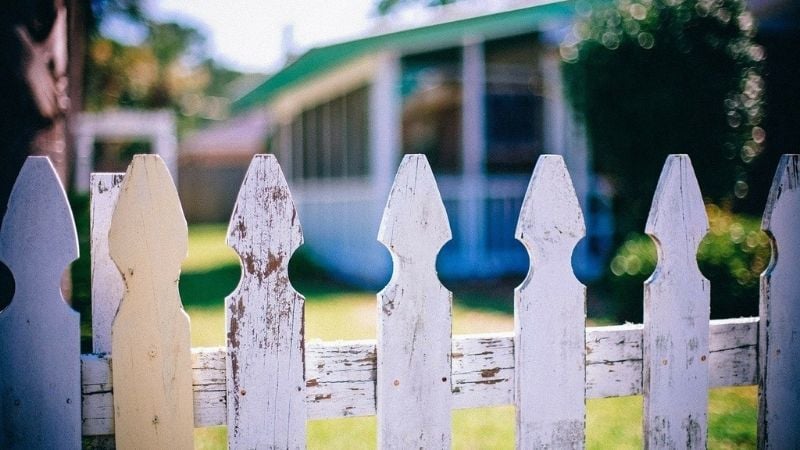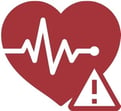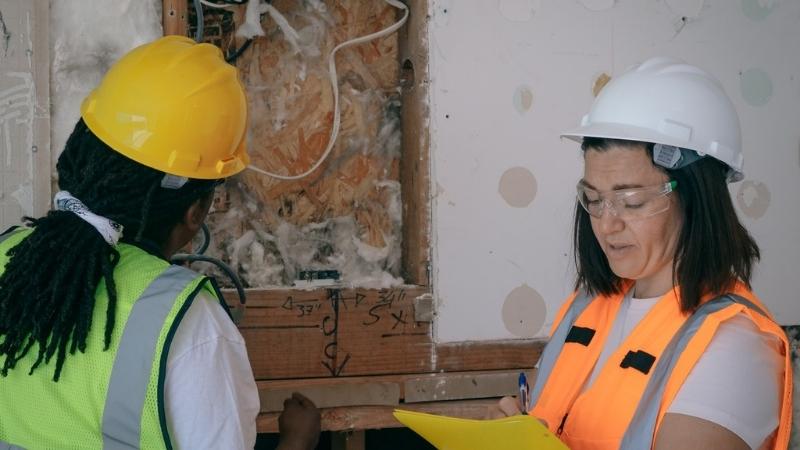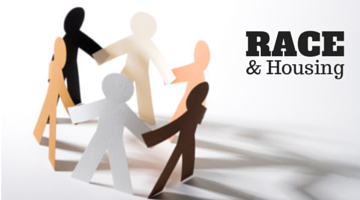How Housing Impacts Health
It’s estimated that people spend about 90% of their lives indoors. This highlights how important our homes are to our overall health. On a global...
3 min read
 Jackie Moore
:
2:08 PM on September 20, 2021
Jackie Moore
:
2:08 PM on September 20, 2021

This blog has been updated to include information about a recent Twin Cities Habitat event.
On Thursday, October 7, Twin Cities Habitat hosted the 10th Annual Hope Builders Virtual Fundraising Luncheon. Featured speakers Dr. Taj Mustapha and Stella Whitney-West shared an inspiring discussion about the intersections of health, housing, and racial equity. To continue learning about how accessible housing impacts health outcomes, read about the event or watch a recording of the discussion here.
Having a safe and stable place to call home is not just needed for comfort and happiness, but for heart health, too.
 According to the US Department of Housing and Urban Development, homelessness is defined as “not having the resources to obtain permanent housing.” This definition can include those who make frequent moves in a short period of time, those who live with friends or couch-surf, who live temporarily in a hotel, or who live on the street or in shelters.
According to the US Department of Housing and Urban Development, homelessness is defined as “not having the resources to obtain permanent housing.” This definition can include those who make frequent moves in a short period of time, those who live with friends or couch-surf, who live temporarily in a hotel, or who live on the street or in shelters.
Adults experiencing homelessness have 60-70% higher rates of cardiovascular events than the general public. Cardiovascular events contribute to the high mortality rate of the homeless, which is three to five times higher than those who are not homeless, in both Canada and the United States.
But it’s not just homelessness that can lead to heart problems. Substandard housing, environmental concerns, and the threat of foreclosures, to name a few, can all contribute to negative cardiovascular outcomes. Let’s take a look.
Certainly, homelessness can have a major impact on health. Obtaining regular and quality sleep is a frequent obstacle for those without stable housing, which studies have shown can increase cardiovascular risk and mortality.
In addition, mental health tends to be poorer in those who experience homelessness or are lower income. Adults with severe mental illness were shown to have an increased risk of mortality from coronary heart disease in a study covering 741 practices in the United Kingdom over nearly 20 years. Some of the reasons these and other risk factors may go untreated can include a lack of access to appropriate medications, an inability to store them properly, an inability to follow directions (as one study participant put it, “If I have to take [the medication] with food, first I have to find a place to eat.”), and day-to-day survival taking precedence over chronic conditions that may not show immediate symptoms.

There are areas where homelessness and housing in low-income areas can overlap. Living close to busy roads, and the pollution that cars produce, leads to an increased risk of coronary heart disease incidents. Pollutants from other sources, such as manufacturing plants, secondhand smoke, mold, and allergens, can also contribute to these risks.
Living in a lower-income neighborhood tends to bring with it, in addition to higher pollution and other risk factors, the threat of foreclosures. One study found that for every additional foreclosure within 100 meters of a participant, there was a rise in blood pressure. In the Hispanic Community Health Study/Study of Latinos, neighborhoods with a greater risk of foreclosures have higher levels of hypercholesterolemia and hypertension. In another study, middle-aged Black individuals fared worse – higher rates of foreclosures in those neighborhoods were associated with higher rates of myocardial infarctions and strokes.
As lower-income neighborhoods in cities are often the result of racially discriminatory historic redlining, many of these neighborhoods also experience Urban Heat Island (UHI) effects, one of which is negative health outcomes, including increased cardiovascular risk. From 1984 to 2017, one study found that cardiovascular deaths, as a result of increased temperatures from UHIs, went up by 28.8%.
So what can be done to try to mitigate these risks among different populations?
For those already living in apartments or homes, improved HVAC systems can improve both temperature and air filtration. Strong connections with one’s neighbors, and a sense of community, can also protect against death from strokes and diabetes.
Something that would help everyone, regardless of whether they experience homelessness or not, would be increasing the green space and vegetation throughout urban areas. Green spaces are associated with lower rates of heart issues and type 2 diabetes.

In addition, more robust community health organizations, working to ensure continuity of care for homeless populations, as well as resources for homeowners facing potential foreclosure, can reduce some of these risk factors.
While housing issues can have a drastic impact on heart health, there are many things that can be done. Twin Cities Habitat helps by offering a Mortgage Foreclosure Prevention Program that can help keep people in their homes. The Homeownership Program prepares families to buy stable, affordable homes with Habitat. Habitat's A Brush with Kindness home repair program and Age Well at HomeTM program both help homeowners keep their homes healthy and safe. Support Twin Cities Habitat today to ensure a healthy future for your community.
Your gift unlocks bright futures! Donate now to create, preserve, and promote affordable homeownership in the Twin Cities.

It’s estimated that people spend about 90% of their lives indoors. This highlights how important our homes are to our overall health. On a global...

You may know that the Twin Cities often sits near the top of many quality of life measures, including lists related to healthcare, leisure, and...

Twin Cities Habitat for Humanity has a core value of Equity and Inclusion which states: “We promote racial equity and strive to increase diversity,...